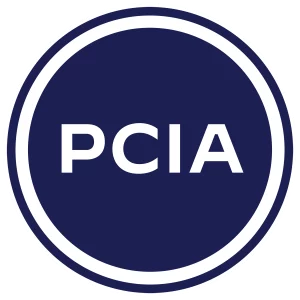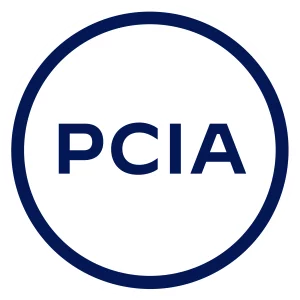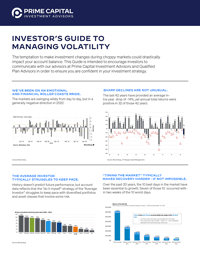In today’s complex financial landscape, many individuals focus on the basics of saving, investing, and retirement planning, but there are critical, lesser-known elements that can help create a solid financial strategy. From helping protect yourself with umbrella policies to managing Medicare premiums and required minimum distributions (RMDs), these elements can have a profound impact on long-term financial health. Read on to learn more about these often-overlooked financial topics!
1. Umbrella Policies
An umbrella policy provides extra liability coverage beyond standard insurance policies like homeowners, auto, or watercraft insurance. This additional layer can be vital for individuals with significant assets or those involved in activities that increase the risk of lawsuits, such as being a landlord or owning properties other people use. For instance, if a renter causes an accident resulting in a lawsuit that exceeds standard insurance limits, an umbrella policy can cover the excess costs, helping protect personal and financial assets from severe depletion.
Moreover, umbrella insurance covers liabilities not typically included in basic policies, such as libel, slander, and invasion of privacy. It has a relatively low annual cost (approximately $200-$300 for $1 million in coverage). Even individuals with modest assets may want to consider an umbrella policy to safeguard against unforeseen liabilities that could lead to significant financial loss.
2. Health Care Premiums
Health care premiums are something to consider when it comes to building and protecting wealth as they directly impact both immediate and long-term financial planning. In retirement, health care expenses can become a significant portion of your budget, especially when it comes to Medicare premiums. Medicare premiums are higher for those with higher incomes, and can increase due to changes in income, such as selling assets or taking required minimum distributions (RMDs), and there is a two year look back at modified adjusted gross income (MAGI) to determine them. However, with proper planning, these surcharges can be potentially mitigated. Additionally, filing for Medicare premium exemptions might be indicated in your situation if you’ve experienced a life-changing event that has impacted your income.
3. Required Minimum Distributions
Required minimum distributions (RMDs) are mandatory withdrawals from retirement accounts that must begin annually at age 73. It’s important to remember this, as you will have to pay taxes on withdrawn amounts from tax-deferred accounts like traditional 401(k)s. RMDs can significantly impact wealth preservation because of their tax implications, and leave you with less spendable income in retirement. Non-compliance, such as failing to take RMDs or taking them in the wrong amounts from the wrong accounts, can lead to penalties, so it’s important to receive reliable advice from your financial advisor and tax professional. (Penalties have been reduced from 50% to 25% of the RMD amount via the SECURE 2.0 Act, but you don’t want to owe taxes plus a 25% surcharge on the taxes owed.) Strategies like qualified charitable distributions (QCDs) can help satisfy RMDs in some cases while reducing taxable income. By taking proactive steps to properly plan for RMDs—preferably before you retire—you may be able to minimize your taxes and protect your wealth.
4. Child Education Funding Strategies
When considering child education funding strategies, you will want to evaluate various approaches and their implications on your financial strategy. 529 Plans are popular tax-advantaged savings plans specifically designed for education expenses, while UGMAs/UTMAs serve as custodial accounts where a parent or guardian can contribute funds in amounts up to the gift tax exclusion and then invest them on behalf of their dependent. It’s important to know the rules regarding accessing these funds and if there are potential penalties incurred from using funds for non-educational purposes. Families will also want to understand how these strategies impact FAFSA financial aid eligibility. As families prepare for education costs, they must also consider student loans, including repayment strategies and the tax implications of potential loan forgiveness. Exploring alternative approaches, such as insurance policies or other financial instruments, can potentially provide added flexibility beyond traditional savings plans.
Parents and guardians may also want to adapt their plan in case their child wants to pursue a career path that does not require a traditional bachelor’s degree. This further emphasizes the importance of tailored funding strategies that align with individual goals and values.
5. Director and Officer (D&O) Coverage
Understanding director and officer (D&O) coverage will be on the list for anyone involved in managing or governing an organization, whether for-profit or nonprofit. D&O insurance protects directors and officers from personal losses if they are sued for alleged wrongful acts while operating in their role, such as breaches of fiduciary duty or regulatory compliance issues. Given that more than 25% of private companies experience D&O losses over three years, the financial implications can be severe. Lawsuits are not limited to large corporations; even small businesses can face significant risks from third-party claims. By helping cover legal fees, settlements, and defense costs, D&O insurance can aide in preserving financial stability, helping individuals focus on their roles without the constant worry of legal repercussions.
If you want to learn how you can potentially incorporate these topics into your overall strategy, remember, we are here to help with the complexities of financial planning while keeping your financial goals in focus. Give Jason Noble a call today at (843) 743-2926 or call Prime Capital Financial Wichita at (316) 669-9413 to take the first step toward designing a portfolio tailored to you.
Sources:
- https://www.investopedia.com/terms/u/umbrella-insurance-policy.asp
- https://www.investopedia.com/health-insurance-premium-4773146
- https://www.investopedia.com/terms/r/requiredminimumdistribution.asp
- https://www.investopedia.com/types-college-savings-plans-7187399
- https://www.investopedia.com/terms/d/directors-and-officers-liability-insurance.asp
This article is for general information only and should not be considered as financial, tax or legal advice. Prime Capital and its associates do not provide legal or tax advice. Individuals should consult with an attorney or professional specializing in the fields of legal, tax, or accounting regarding the applicability of this information for their situations.
Advisory products and services offered by Investment Adviser Representatives through Prime Capital Investment Advisors, LLC (“PCIA”), a federally registered investment adviser. PCIA: 6201 College Blvd., Suite#150, Overland Park, KS 66211. PCIA doing business as Prime Capital Financial | Wealth | Retirement | Wellness.
101424019 JG





